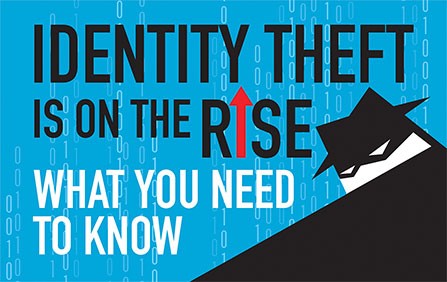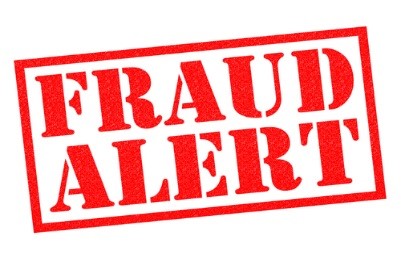Identity Theft Information
Identity Theft & Security Breach Information
Welcome to the Department of Commerce and Consumer Affairs identity theft information webpage. Identity theft doesn’t have to be inevitable. There are things that you can do to reduce the chances that you become a victim and to minimize the damage should it happen to you. If you’re a business owner, and you would like more information on how the Hawaii’s identity theft laws will affect your business, read our Business Briefing.
For a list of security breaches affecting 1,000 or more Hawaii residents that were reported to the Office of Consumer Protection, see our Security Breach Notices
Identity Theft Warning Signs
- Unauthorized charges on your credit card
- Receiving credit cards that you did not seek or apply for
- Missing credit card bills
- Calls or letters from debt collectors or businesses about merchandise you did not buy or services you did not authorize
- Being denied credit or offered credit at less favorable terms for no apparent reason
- Unauthorized credit cards or charges on your credit report
Identity theft occurs when someone uses your personal information such as your name, Social Security number, credit card number or other identifying information, without your permission, to commit fraud or other crimes.

Your personal information can be stolen or obtained from businesses or government entities you have patronized if the business or government entity suffers a security breach. Security breaches can occur for a variety of reasons:
- Hackers, or unauthorized access to personal information
- Accidental release or display of information
- Theft of personal information by a business’s employee or contractor
- Stolen laptops, computers, or other equipment

PROTECTING YOURSELF WITH SECURITY FREEZES
If you’re concerned about identity theft, those reported mega-data breaches, or someone gaining access to your credit report without your permission, you might consider placing a credit freeze on your report.
What is a security freeze?
A security freeze means that your file cannot be shared with potential creditors. A security freeze can help prevent identity theft. Most businesses will not open credit accounts without first checking a consumer’s credit history. If your credit files are frozen, even someone who has your name and Social Security number would probably not be able to obtain credit in your name.
How do I place a freeze on my credit reports?
Act 22 of the 2018 Legislative Session recently amended the Hawaii law governing security freezes to allow Hawaii residents, including children under 16, to request a security freeze without being charged a fee. Additionally, effective in September 2018, a new federal law, the Economic Growth, Regulatory Relief, and Consumer Act, will extend the right to obtain a free credit freeze to the rest of the country.
To place a security freeze, consumers and guardians of protected consumers, must request one from each of the credit reporting agencies – Equifax, Experian, and TransUnion. The request can be made by mail, online, and telephone.
HOW TO “FREEZE” YOUR CREDIT
You can place a security freeze by contacting each of the credit reporting agencies at the websites, phone numbers, and mailing addresses below.
Consumer Reporting Agency |
Experian |
Equifax |
TransUnion |
Phone |
(888) 397-3742 | (800) 685-1111 | (888) 909-8872 |
Mail* |
Experian Security Freeze P.O. Box 9554 Allen, TX 75013 |
Equifax Security Freeze P.O. Box 105788 Atlanta, GA 30348 |
TransUnion LLC P.O. Box 2000 Chester, PA 19016 |
| * When requesting a placement, temporary lift, or removal of a security freeze by mail, please include the following information with your request: 1) Your complete name, including any suffix such as Jr. or Sr., 2) Your complete current mailing address and previous mailing addresses the past two years, 3) Social Security number, 4) date of birth, and 5) a copy of your government issued identification card, such as a driver license, state ID card, etc. Check with each credit reporting agency for any additional documents required. | |||
After receiving your credit freeze request, each credit bureau will send you a confirmation letter containing a unique PIN (personal identification number) or password. Keep the PIN or password in a safe place. You will need it if you choose to lift the freeze.
Does a credit freeze affect my credit score?
No. A credit freeze does not affect your credit score.
A credit freeze also does not:
- prevent you from getting your free annual credit report
- keep you from opening a new account, applying for a job, renting an apartment, or buying insurance. But if you’re doing any of these, you’ll need to lift the freeze temporarily, either for a specific time or for a specific party, say, a potential landlord or employer. The cost and lead times to lift a freeze vary, so it’s best to check with the credit reporting company in advance.
- prevent a thief from making charges to your existing accounts. You still need to monitor all bank, credit card and insurance statements for fraudulent transactions.
Can anyone see my credit report if it is frozen?
Certain entities still will have access to it.
-
- Your report can be released to your existing creditors or to debt collectors acting on their behalf.
- Government agencies may have access in response to a court or administrative order, a subpoena, or a search warrant.
How do I lift a freeze?
A freeze remains in place until you ask the credit reporting agency to temporary lift it or remove it all together. When you placed a security freeze on your credit report, you were provided with a personal identification number (PIN). Use this PIN when you request a consumer reporting agency to temporary lift the security freeze by mail, telephone, or online.
What’s the difference between a credit freeze and a fraud alert?
A credit freeze locks down your credit. A fraud alert allows creditors to get a copy of your credit report as long as they take steps to verify your identity.
PROTECTING YOURSELF FOLLOWING A SECURITY BREACH WITH A FRAUD ALERT
-
-
-
- Contact your creditors, including credit card companies, banks, credit unions, and other lenders, to determine whether there is any suspicious or unauthorized activity that has occurred on your accounts
- Contact any of the three credit reporting companies to place a fraud alerton your credit report. A fraud alert does not block potential new credit, but places a comment on your credit history to alert creditors to contact you prior to opening a new account. Once you have contacted any one of the three credit reporting companies the other two will be notified that you have placed a fraud alert on your credit report. (See credit reporting company contact information, below)
-
-

-
-
-
- Once you have placed a fraud alerton your credit report, you will be entitled to a free copy of your credit report. The credit reporting companies will send you a letter telling you how to order your free credit report. Review your credit reports carefully for suspicious activity or charges.
- Be alert! The first year following a security breach is when your stolen personal information is most likely to be used by ID thieves.
-
-
How do I place a fraud alert on my credit reports?
To place a fraud alert on your credit reports, ask one of the three credit reporting companies to put a fraud alert on your credit file. Confirm that the company you called will contact the other two companies. Don’t forget to mark your calendar because the initial fraud alert stays on your report for 90 days. You can renew it after 90 days.
Contact information for the credit reporting companies:
| Equifax Consumer Fraud Division P.O. Box 740256 Atlanta, GA 30374 Phone: 1-888-766-0008 |
Experian National Consumer Assistance P.O. Box 9554 Allen, TX 75013 Phone: 1-888-397-3742 |
TransUnion Fraud Victim Assistance P.O. Box 2000 Chester, PA 19016 Phone: 1-888-909-8872 |
Three types of fraud alerts are available:
-
-
-
- Initial Fraud Alert. If you're concerned about identity theft, but haven't yet become a victim, this fraud alert will protect your credit from unverified access for at least 90 days. You may want to place a fraud alert on your file if your wallet, Social Security card, or other personal, financial or account information are lost or stolen.
- Extended Fraud Alert. For victims of identity theft, an extended fraud alert will protect your credit for seven years.
- Active Duty Military Alert. For those in the military who want to protect their credit while deployed, this fraud alert lasts for one year.
-
-
How do I get a free copy of my credit reports?
All consumers can obtain a free annual credit report from each of the major credit reporting agencies, regardless of whether they have been victims of identity theft. Call 1-877-322-8228, or request one online.
IDENTITY THEFT & SECURITY BREACH LINKS
-
-
-
- Free resources on identity theft
- Sample letters and forms for victims of identity theft
- Create an identity theft report and get a recover plan
-
-